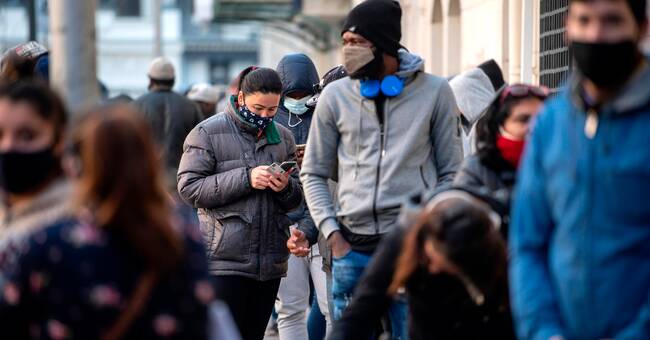Australia was the first to allow those who have lost their jobs due to the corona pandemic in April, or have had their service reduced by at least 20 percent, to withdraw up to the equivalent of SEK 125,000 from their pension savings.
Peru followed shortly thereafter, but with a measure that went further and allowed all Peruvians to withdraw up to 25 percent of their pension savings in private funds. But in Peru, there are many who do not have such savings.
Victory for protest movementThe decision has the greatest effect in Chile, where everyone is allowed to withdraw a tenth of their savings from private pension funds. The decision is justified by the corona pandemic, but also has to do with the fact that the low pensions in the country have long given rise to a movement that was driving in the protests that have shaken the country since last year.
Anger has been leveled at the private pension funds to which the Chilean system leans heavily and which many believe make big profits while pensions are low.
- This law was a first victory for that movement in that it recognizes that the savings are the person's own money, to which it should be entitled, says lawyer Marcela Coronado Águila.
However, the OECD believes that all these initiatives could have serious consequences for future pensions. Their chief economist responsible for pensions, Pablo Antolin, mentions Peru, Australia and the USA - where it was already possible to withdraw pension savings for a fee that can now be avoided for three years - as a cloud of concern. But he is most worried about the situation in Chile.
May have consequencesAntolin says that the OECD is in favor of allowing withdrawals from pension funds in extreme situations, such as having a fatal illness or being long-term unemployed.
- But to make it possible for the entire population, as in Chile, even if they were not financially affected by the crisis, does not make sense at all, he says.
- If Chile already had problems with pensions not being high enough, they will be even lower in the future.

